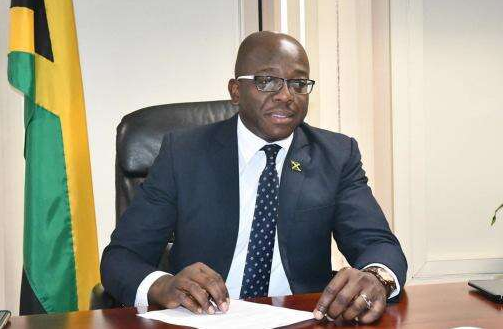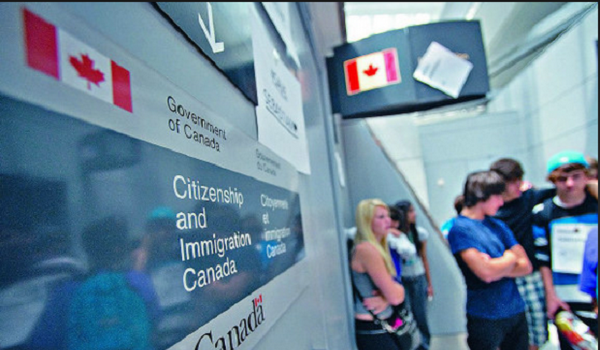An open letter under Canadian government review shows Jamaican workers are treated like ‘animals’
The Jamaican government visited a number of Ontario farms last week after migrant workers claimed they were required to work “like animals” in an open letter currently under review by the Canadian government.
The visits come on the heels of a tense season for migrant farmers in Canada’s temporary foreign worker program and shortly after a group of workers in Brantford, Ont. penned the open letter published on Justice for Migrant Workers’ website.
The letter did not identify the farm, but an advocate for Justice for Migrant Workers confirmed the farmers who wrote the letter worked at Komienski Farms.
“These bosses, they think of Jamaicans overall, they think of us as some type of a slave, the way they talk to us, the way they greet us,” a 32-year-old Jamaican worker involved in the letter, who CTV News Toronto will call Alex, said while speaking from Komienski
“I don’t want to say they are racist, but I do think it sometimes,” he said.
The farm has not responded to CTV News Toronto’s repeated requests for comment.
Federal Employment Minister Randy Boissonnault’s spokesperson said, in a statement issued on Wednesday, the government is working to ensure temporary foreign workers are safe, and treated with respect and dignity.
“But we know that is not always the case,” they said.
BATHROOM BREAKS AND BED BUGS
Jamaica Labour Minister Pearnel Charles Jr. travelled to more than 10 farms in Ontario last week, beginning with Komienski Farms – pinpointing “notable locations” from prior reports – and visiting Queen’s Park on Thursday. In a subsequent video, he vocalized his commitment to the rights and working conditions of Jamaican migrant farmers.
“I just want to make sure that this month the issue is resolved. Because we are all imperfect, but we are working to improve,” the minister said.
The letter, released on Oct. 18 in conjunction with the Canada-Caribbean Community summit in Ottawa, described bunkhouses infested with bed bugs and constraints on bathroom breaks, claiming these issues are not new. Open letters published in previous years, such as in Aug. 2022, have equated the program to “systematic slavery” in Canada.
CTV News Toronto spoke directly to two of the farmers involved in crafting the recent document.
Junior, a 36-year-old Jamaican who has been farming vegetables in southwestern Ontario for eight years, said this is the year he decided to take a stand.
“We say enough is enough. We can’t take this anymore,” he said.
He said this season, he’s been denied a bathroom break while out in the field or in the packing house and told it’s “company policy” to wait until an official break. But at times, Junior said he doesn’t even have time to go to the bathroom during his break because of the time it takes to transition from field to field.
Alex voiced the identical issue. “The first time, I didn’t do anything, but the last time, I punched out and stopped working,” he said.
“But I know with me doing that … there won’t be any requests for me,” he said, referring to the hiring process that selects farmers from Mexico, Jamaica and other Caribbean countries.
Alex has been working in Brantford since March, most recently harvesting squash and sweet peppers for the fall season. Since he arrived, his bunkhouse has been infested with bedbugs, he said.
“When we just got here, we found one [bed bug], and then we spoke to them about it and [they] gave [us] spray and powders and removed a few bunk beds,” Alex said, showing a red, irritated bite on his skin in a photo to CTV News Toronto.
He said the employer finally brought someone to treat the bedbugs, only after Service Canada paid a visit to the farm, but the bugs came back.
‘PAY THE PRICE’
In response to the open letter, the spokesperson for Canada’s Ministry of Labour pointed to Boissonnault’s Oct. 5. Senate committee comments in which he warned bad actors that he will “find them and they will pay the price” if they mistreat or abuse migrant workers.
As the season nears its end for many temporary foreign farmers, Junior and Alex said they fear the financial ramifications their families could face if it is their last. “The farm has a tendency to not ask you back when you speak out at work,” Junior said. According to the workers, a fellow farmer who spoke out about work conditions to an official with the Ministry of Employment and Social Development last year was not called back.
In the open letter, they write: “We have left our children, spouses, parents, siblings, friends and other loved ones to come here.”
“We came to this country to get better – we came for more than this low-paying job. We should have the ability to work in a place that treats us with respect. We are no different than the generations of migrant workers that came before us.”
This article was reported by CTV News
















